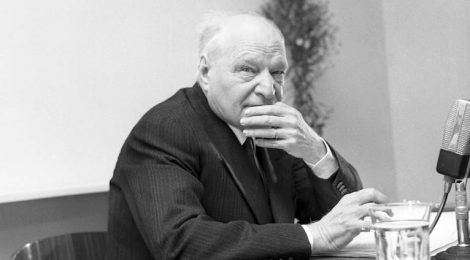
L’angolo della poesia
Giuseppe Ungaretti was born in Alexandria (Egypt) in 1888 and died in Milan in 1970. He was a poet, a journalist, an essayist, a critic, an academic and a public servant. He fought as an infantry soldier in the trenches during the First World War thereby witnessing first-hand the horrors of war.
After WWI he worked as a journalist for Benito Mussolini’s newspaper Il Popolo d’Italia. He subsequently joined the National Fascist Party and continued to support fascism throughout his life, attracting much controversy.
Together with prominent Italian poets of the time (Montale and Quasimodo) for a while Ungaretti adopted a new poetry style – called hermeticism – that eliminated structure, syntax and punctuation.
In 1942 he was appointed Professor of Modern Literature at the University of Rome. He continued to write essays and poetry, but adopted a more formal style. His best-known poems focus on the theme of war, and are published as part of the collection L’Allegria. Here are two of them.
S. Martino del Carso
Di queste case
non è rimasto
che qualche
brandello di muro
Di tanti
che mi corrispondevano
non è rimasto
neppure tanto
Ma nel cuore
nessuna croce manca
È il mio cuore
il paese più straziato
S. Martino of Carso
Of these houses
nothing
but some wall fragments remain
Of many
of my comrades
not even this much
is left
But in my heart
I hold all their crosses
It is my heart
that is the most torn apart
Veglia
Un’intera nottata
buttato vicino
a un compagno
massacrato
con la sua bocca
digrignata
volta al plenilunio
con la congestione
delle sue mani
penetrata
nel mio silenzio
ho scritto
lettere piene d’amore
Non sono mai stato
tanto
attaccato alla vita
Watch
One whole night
thrust down beside
a slaughtered
comrade
his snarling
mouth
turned to the full moon
the bloating
of his hand
Entering
my silence
I have written
letters full of love
Never have I held
so
fast to life
Notes on the Article
The translation of the poem “Veglia” is by Allen Mandelbaum and can be found in Selected
Poems of Giuseppe Ungaretti (Cornell University Press—1975).
Yvette Devlin
